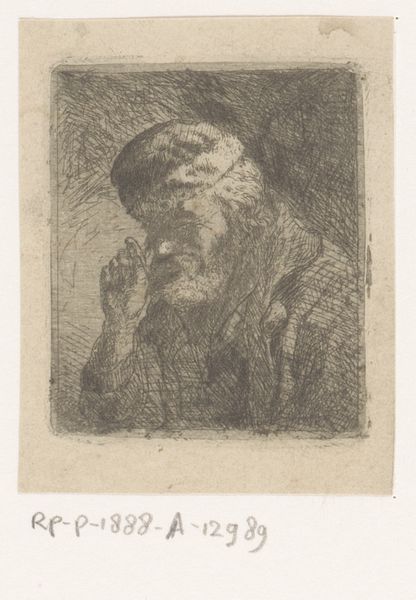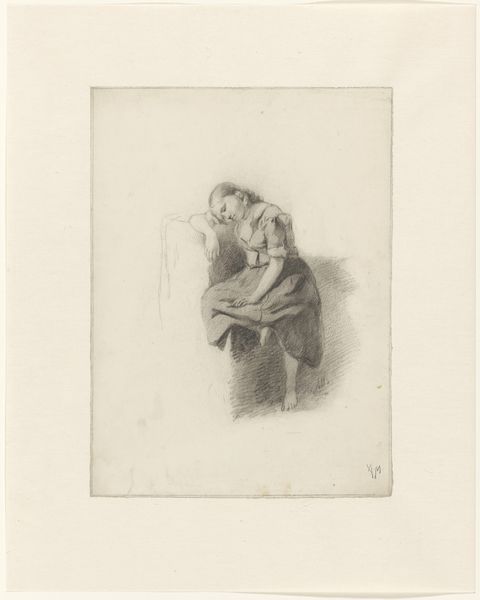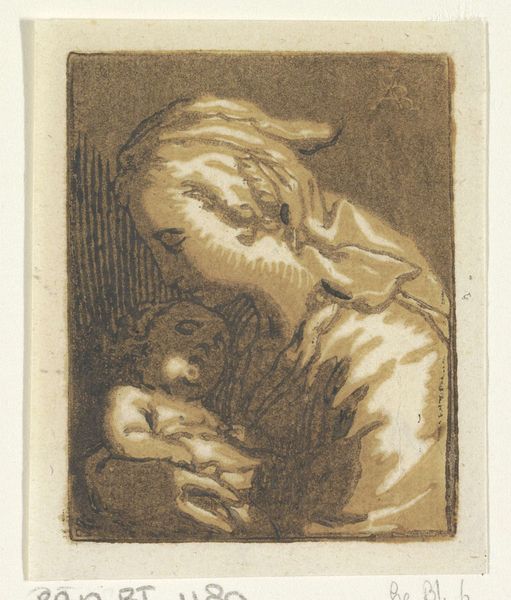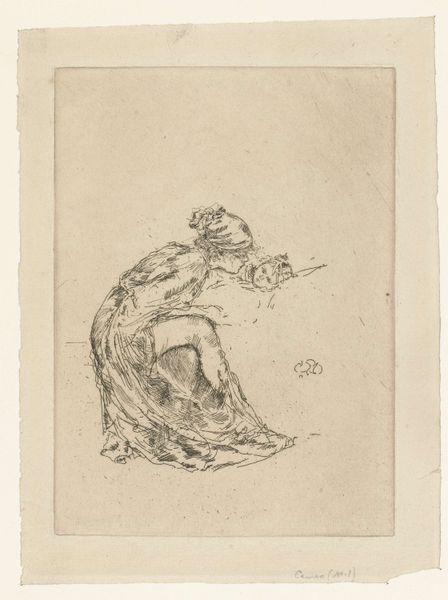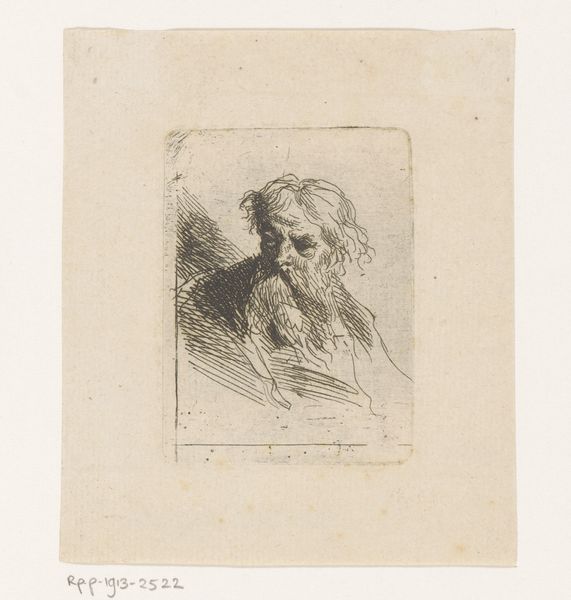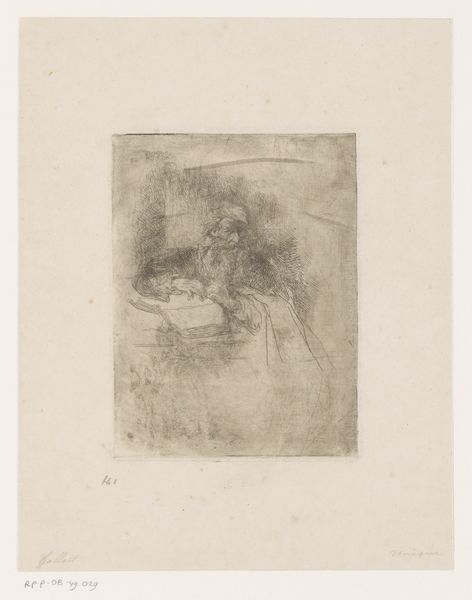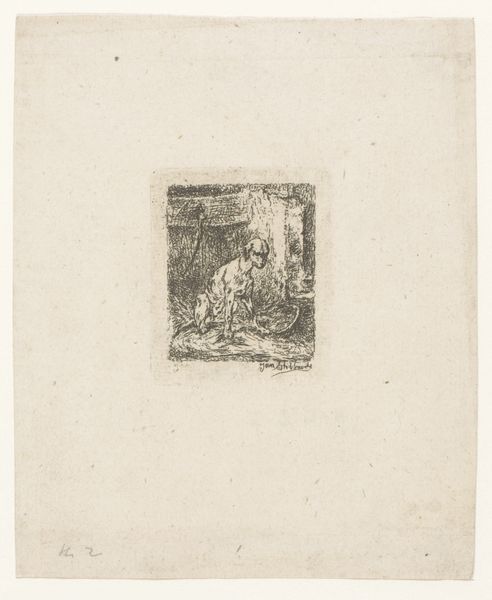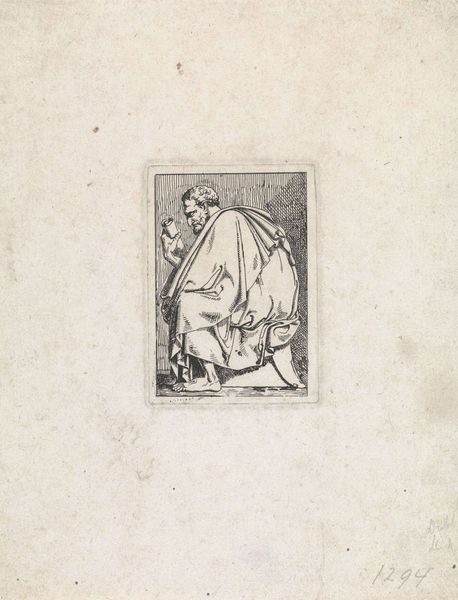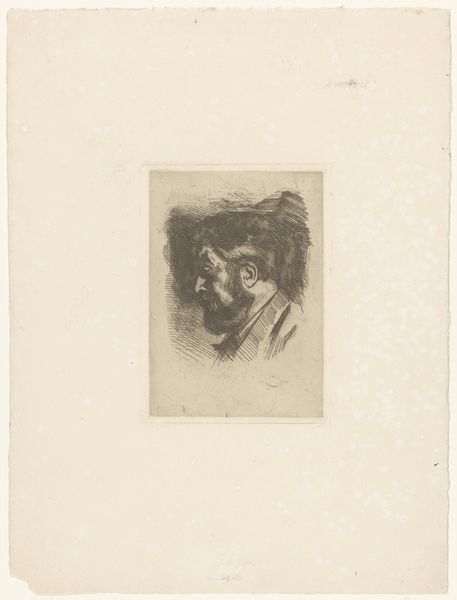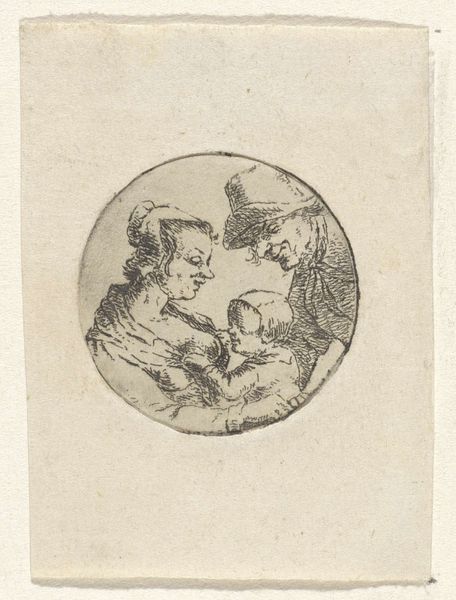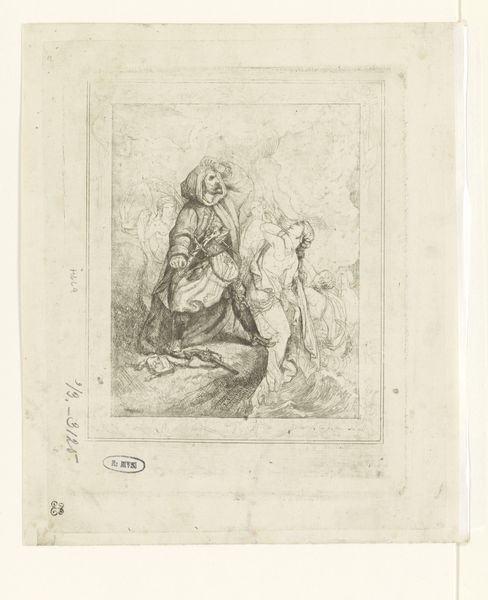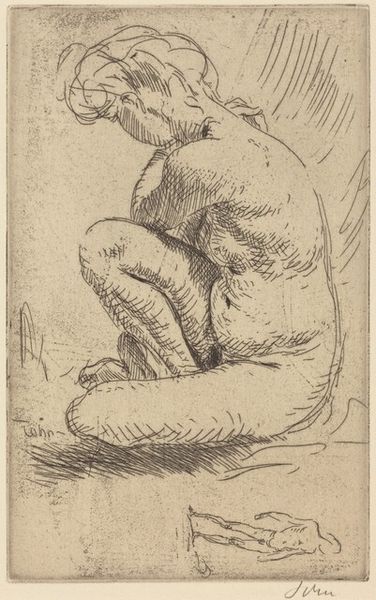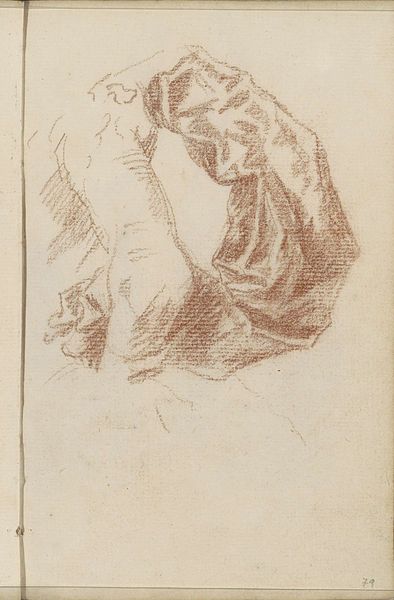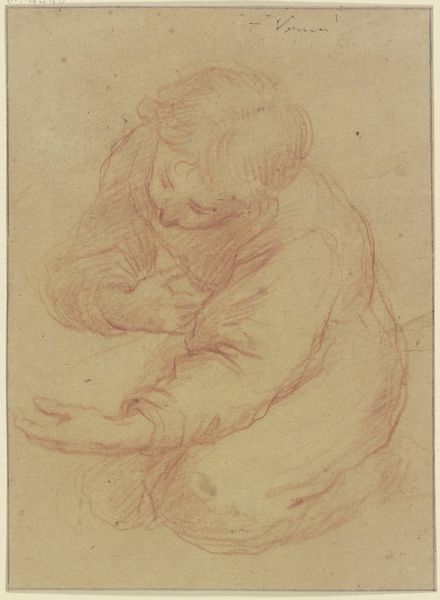
print, engraving
#
portrait
#
dutch-golden-age
# print
#
genre-painting
#
engraving
Dimensions: height 41 mm, width 31 mm
Copyright: Rijks Museum: Open Domain
Editor: Here we have "Monnik leest bijbel" – that’s “Monk Reading Bible” – an engraving by Dirck de Bray, sometime between 1645 and 1694. It's a very small print, but there’s an intensity in the monk’s concentration. What do you see in it? Curator: I see a carefully constructed image that tells us a lot about the role of religion in Dutch Golden Age society, and about how artists like de Bray were positioning themselves within that society. Prints like this, even small ones, were accessible art. Think of them as a form of visual journalism, spreading ideas. Editor: Visual journalism? How so? Curator: Well, consider the market for this. It's not a wealthy patron, likely, but a middle-class household, where displaying religious piety was becoming a marker of status, especially within certain Protestant circles. An engraving like this subtly reinforced that value. What do you think the presence of printed text, rather than an illuminated manuscript, suggests? Editor: I guess that printed text suggests wider access, something less exclusive. Curator: Exactly! And De Bray is participating in that democratizing force, while also benefiting from it. These prints helped him build a reputation and a market. Do you see a critique of religious institutions here? Is it propaganda? Not necessarily, but it reflects a changing social and religious landscape. Editor: So it’s not just a picture of a monk, it’s a little piece of social commentary, too! Curator: Precisely. By examining the who, what, when, and especially the why of its creation and distribution, we start to unpack its cultural significance beyond the image itself. Editor: This has completely changed how I view prints! Thank you for shining a light on all of these contexts.
Comments
No comments
Be the first to comment and join the conversation on the ultimate creative platform.
